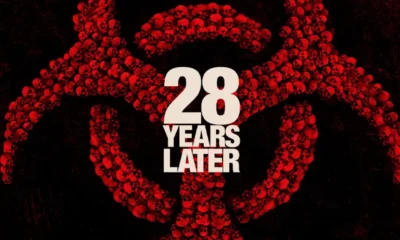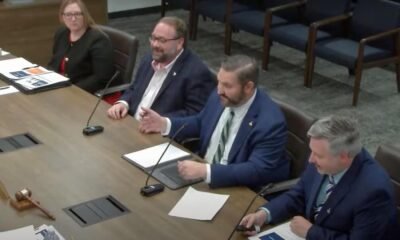arizona
Conover: New Insights from 4 Years of Pima County Cases Reveal Death Penalty’s Obsolescence

Pima County Attorney Laura Conover stands firm in her opposition to the death penalty, diverging from the positions of fellow Democrats such as Governor Katie Hobbs and Attorney General Kris Mayes, who are advocating for the resumption of executions in Arizona.
Reflecting on her experiences since taking office in 2021, Conover has faced the challenging task of informing families that she would de-certify the death penalty in their cases. She made a commitment during her 2020 campaign to dismantle capital punishment and is now working to uphold that promise.
Conover’s insights stem from deep conversations with victims’ families, revealing that many had not originally sought the death penalty. Their beliefs, often shaped by culture and religion, emphasize leaving the ultimate judgment to a higher power rather than deciding on another person’s death.
Her anti-death penalty stance has roots in personal influences, notably her mother, a forensic psychologist. She observed the release of over a dozen innocent men from Arizona’s death row in the 1990s, which highlighted the flaws in the system. Additionally, former U.S. Representative Ron Barber, shaped her understanding after he survived the tragic mass shooting that targeted Congresswoman Gabrielle Giffords in 2011. Barber’s own drive to prevent the death penalty in his case is a key influence.
Nationally, the debate on capital punishment has been heavily influenced by political leadership. During Trump’s final days in office, he ordered a series of federal executions, executing thirteen individuals, many of whom were not the “worst of the worst” as the death penalty theoretically demands. President Biden’s administration was anticipated to halt federal executions but has yet to act decisively. Nevertheless, he has the power to convert death sentences to life imprisonment, allowing inmates to serve their time without the possibility of parole.
On November 26, Conover joined law enforcement officials across the country in urging Biden to make such changes, only for Arizona to announce the resumption of executions the very next day, reflecting how quickly the pendulum can swing in this contentious debate.
Conover empathizes with families caught in this tumultuous landscape, underscoring the deep need for closure amidst prolonged uncertainty. The prolonged wait for justice is felt acutely by victims’ families, a sentiment echoed by both those desiring the death penalty and those opposed to it.
Conover highlights that, in her tenure, the Pima County Attorney’s Office has achieved justice through life sentences without parole in severe cases, avoiding the chaotic environment often associated with capital punishment.
Several reasons have emerged as to why Arizona should abolish the death penalty. The lengthy trauma experienced by victims and families, the lack of proven deterrence, and the real possibility of wrongful convictions point to serious flaws in the system. In addition, pursuing death penalty cases burdens taxpayers with excessive costs associated with legal proceedings and appeals.
The United States remains one of the few democracies to enforce the death penalty, aligning itself with autocratic regimes rather than progressive nations. Racial bias in sentencing and geographical disparities further compromise the fairness of the system, raising ethical concerns around its equitable application.
Religious convictions among families of victims frequently align against capital punishment, emphasizing a desire for mercy over vengeance. Conover has witnessed families who pleaded with previous administrations to avoid seeking the death penalty.
Perhaps most troubling, the historical precedent of sentencing children to death has shifted, as recent Supreme Court rulings have rejected such practices. Many young offenders who received such sentences have since been released after demonstrating significant rehabilitation.
Conover argues that these transformations highlight the potential for redemption, advocating for a test period without the death penalty to assess its necessity in Arizona. The goal is clear: save taxpayer dollars and explore more humane forms of justice.


















